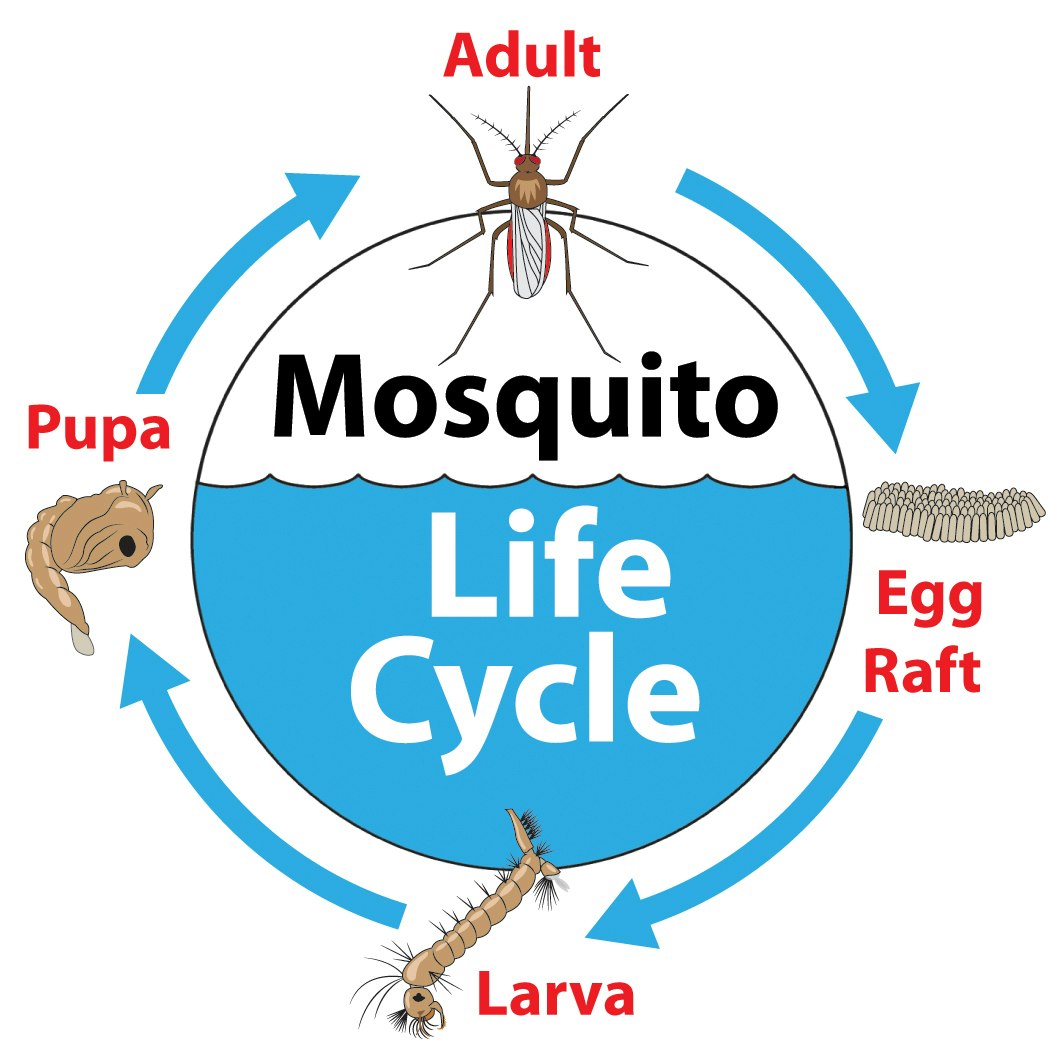Mosquitoes
Mosquitoes are small, blood-feeding flies (Order: Diptera, Family: Culicidae). Most species are only 1/8 - 1/4” long. Adult mosquitoes have two wings and a long needle-like mouth (called a proboscis). Immature stages of mosquitoes are aquatic and do not resemble the adults. Mosquito larvae are elongated and often have a long respiratory siphon, while pupae are comma-shaped and have two smaller breathing tubes.
Life cycle & habitat

Mosquitoes develop in a wide range of aquatic habitats. Some species of mosquitoes lay large numbers of eggs directly onto standing water, while others deposit eggs in areas that periodically flood. Mosquitoes progress through four life stages: egg, larva, pupa and adult. Aquatic mosquito larvae hatch from eggs and develop into pupae. The pupae emerge from the water as adults. Warm temperatures generally encourage faster development, with some mosquitoes developing from egg to adult in approximately one week.
Impact on human health
- Adult female mosquitoes may bite humans or other vertebrates (including pets, livestock and wildlife) to obtain the blood required for egg development.
- Bites cause skin irritation and may become infected especially if the bite is scratched.
- Worldwide, mosquitoes are known to transmit a wide range of pathogens, including viruses, filarial nematodes, and protozoans such as the parasite that causes malaria.
- Locally, mosquitoes are known to transmit West Nile virus (WNV) to humans and dog heartworm to certain animals.
Control
- For an overview of the District’s mosquito control activities, see our Mosquito Control Program page, under Services.
What you can do to prevent exposure
Reduce outdoor exposure to mosquitoes
- Avoid being outdoors during peak mosquito activity (dawn and dusk).
- Use mosquito repellents containing DEET, picaridin or oil of lemon eucalyptus (always carefully read and follow the directions on the label!)
- Wear protective clothing.
Reduce indoor exposure to mosquitoes
- Keep doors and windows closed whenever possible.
- Check and maintain all window and door screens.
Useful links
American Mosquito Control Association (AMCA)
- Wide range of information about biology and control of mosquitoes
- Links to AMCA publications
CDPH Insect Repellent Use & Safety
- Answers to general questions about repellents
- Guidelines for using repellents properly on children
